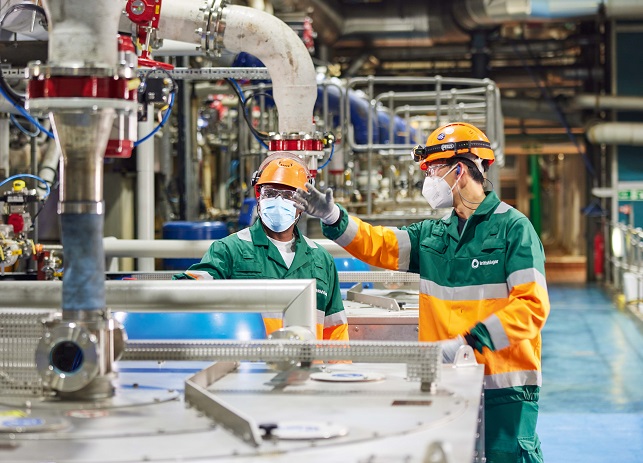About Us
Our Businesses
Investors
Responsibility
Media
Careers
At British Sugar, we are constantly exploring ways to optimise our factory operations at every point of the sugar-making process.
In 2020, the UK sugar beet crop faced significant challenges. Aphids spread the virus yellows disease to sugar beet and this, combined with extreme weather, resulted in well below-average crop yields and a big reduction in our sugar production.
We developed an ambitious plan to minimise the impact of this through a fundamental process change in the sugar-making process at our factory at Wissington in Norfolk, UK, aimed at increasing sugar production.
The plan involved the introduction of a further boiling stage for the sugar juice extracted from the sugar beet which, combined with modifications to our on-site chromatography plant, resulted in increased operational efficiency and the ability to extract an additional 25,000 tonnes of sugar from the crop. From concept through design, build, commissioning and operational success took less than nine months and our targeted production volumes were achieved within the first five weeks of operation.

The project’s success relied on quick decisions, engineering excellence and a customer-led approach from the teams. The investment not only drove increased production of white sugar by using the sugar molasses we produce from sugar beet differently, it also increased the amount of betaine we produced for other markets.
Jeff Nan (pictured below right), who joined our Chemical Engineering Graduate Scheme in 2018, was integral to the success of this project, bringing his process engineering experience to deliver against a challenging timeline. The benefits were seen almost immediately.
We will continue to invest in our engineering ingenuity to drive our efficiency and use as much of our raw material as possible.
Doing more with less is at the heart of our circular economy approach, as we strive to maximise value and minimise waste.